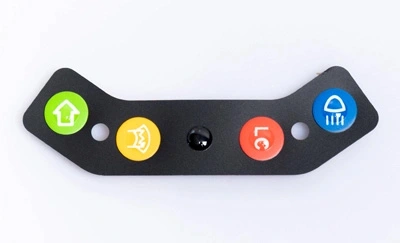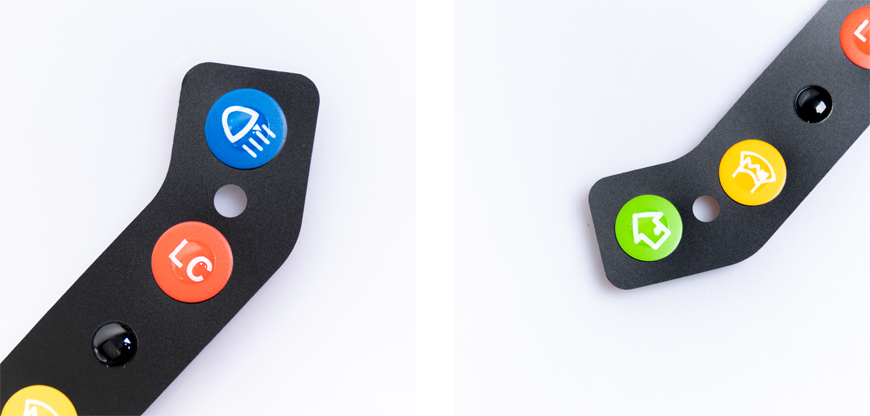
In the digital age, keyboards have become an essential tool for communication, work, and leisure. The choice of a keyboard can significantly impact your typing experience and overall productivity. One of the most crucial decisions when buying a keyboard is whether to opt for mechanical switches or membrane switches. In this article, we will delve into the differences between these two types of keyboard switches to help you make an informed decision.

Before we dive into the comparison, let's first understand what mechanical and membrane switches are:
Mechanical Switches
Mechanical switches are known for their tactile feedback and audible click sound. They consist of individual mechanical components for each key, including a spring and actuation mechanism. When you press a key, you can feel a distinct tactile bump, and the keystroke is registered with a satisfying click.
Membrane Switches
On the other hand, membrane switches use a rubber dome under the keys to register keystrokes. When you press a key, the rubber dome collapses, making contact with a circuit beneath, and the keypress is registered. Membrane keyboards are often quieter and have a softer feel compared to mechanical ones.
Now that we have a basic understanding of both types of switches, let's compare them based on various factors:
Typing Experience
Mechanical keyboards are favored by many for their superior typing experience. The tactile feedback and distinct click make them ideal for those who type for extended periods. Membrane keyboards, while quieter, may lack the satisfying feel that mechanical keyboards offer.
Noise Level
One significant consideration is noise. Mechanical keyboards can be quite loud due to the audible click. This noise can be bothersome in quiet office environments. Membrane keyboards, being quieter, are more suitable for shared workspaces.
Durability
When it comes to durability, mechanical keyboards have the upper hand. The individual components in mechanical switches are built to withstand millions of keystrokes, making them last longer than membrane switches, which may wear out sooner.
Customization
Mechanical keyboards are known for their customization options. You can often swap out keycaps and choose from various switch types to cater to your preferences. Membrane keyboards, while functional, have limited customization options.
Price Point
Membrane keyboards are generally more affordable than mechanical ones. If you're on a budget, a membrane keyboard might be the better choice.
The choice between mechanical and membrane switches ultimately depends on your preferences and needs. Here are some factors to consider when making your decision:
If you prioritize typing experience and don't mind the noise, go for a mechanical keyboard.
If you need a quieter keyboard for shared spaces, opt for a membrane keyboard.
If you want a durable keyboard that can withstand heavy usage, mechanical is the way to go.
If you're on a budget and need a functional keyboard, a membrane keyboard may suffice.
In the battle of keyboard switches, there is no one-size-fits-all answer. The choice between mechanical and membrane switches is highly subjective. Consider your typing habits, environment, and budget when making your decision.
Now, let's address some frequently asked questions.
1. Are mechanical keyboards better for gaming?
Mechanical keyboards are often preferred by gamers due to their tactile feedback and faster response times.
2. Do membrane keyboards require less maintenance?
Yes, membrane keyboards generally require less maintenance because they have fewer moving parts.
3. Can I replace the switches on a mechanical keyboard?
Yes, many mechanical keyboards allow you to replace the switches to tailor the typing experience to your liking.
4. Are membrane keyboards suitable for office use?
Membrane keyboards are quieter and more suitable for office use, especially in shared workspaces.
5. Are there hybrid keyboards that combine both mechanical and membrane switches?
Yes, some keyboards offer a combination of both switch types, giving you the best of both worlds.
In conclusion, the choice between mechanical and membrane keyboards ultimately boils down to personal preference. Consider your typing habits, noise tolerance, and budget to make the right decision. Whichever you choose, a comfortable keyboard is essential for a productive computing experience.
NEXT